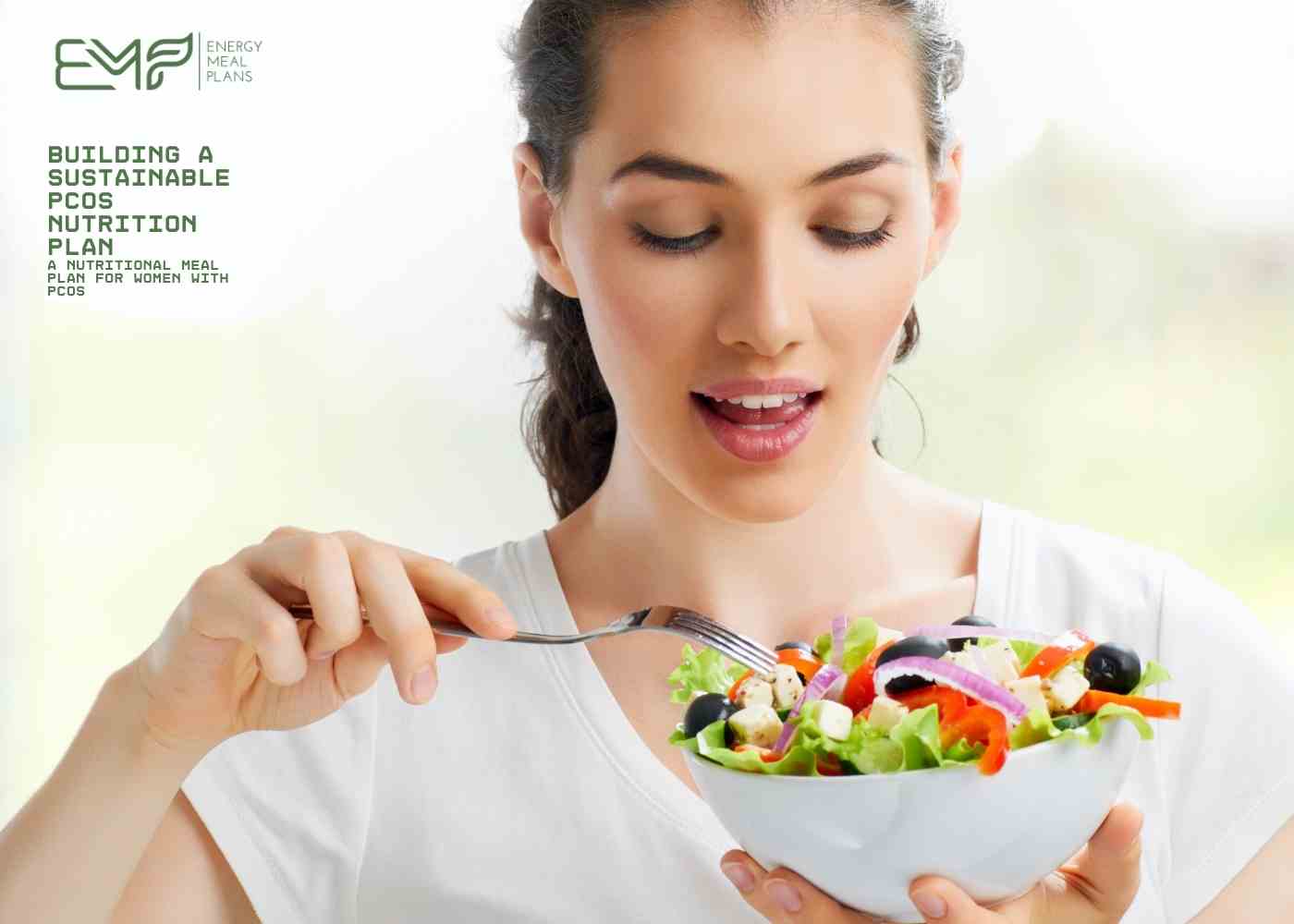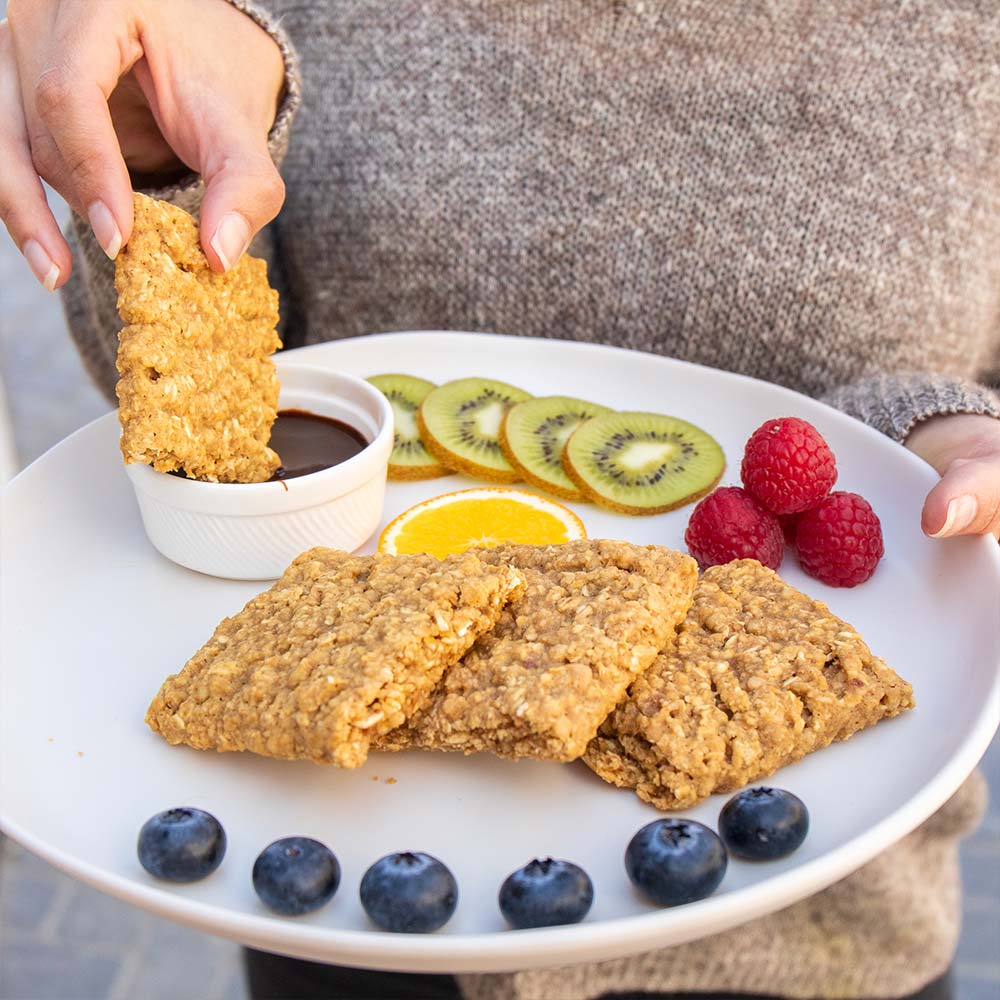As one of the most prevalent hormonal disorders of women,
Polycystic Ovary Syndrome (PCOS) affects nearly 10% of women of reproductive
age globally. In addition to the common irregular cycles, weight gain/inability
to lose weight, and difficulty with getting/being pregnant, PCOS is also
intimately tied to insulin resistance and inflammation. For most women, the
pathway to treating symptoms does not begin with a prescription, but with food.
Putting together a structured PCOS meal plan has a direct and real effect on
energy, hormones and future health.
At Energy Meal Plans, we believe food should nourish us, not just
sustain us. PCOS-friendly eating for women with PCOS is not about restriction,
it is about balance; whole foods that steady blood sugar, decrease
inflammation, and support hormonal well-being. This article teases apart what
the best PCOS diet looks like for women, including the information and
strategies you can apply in your day-to-day life.
Why a Meal Plan Matters for PCOS
A customized diet for PCOS can help with:
- Insulin resistance: Affects 70% of women with PCOS,
therefore stabilizing blood sugars is of utmost concern.
- Hormonal balance: By stabilizing insulin, androgens are
regulated, leading to improvements in acne, hair growth, and cycle regularity.
- Weight management: Sustainable nutrition that fuels
metabolism, not “quick fixes”.
- Reduction in inflammation: Many foods in the diet can reduce
chronic levels of inflammation, calming symptoms like fatigue and mood swings.
Key Principles of a PCOS-Friendly Diet
1. Stabilize Blood Sugar with Smart Carbs
Not every carb is equal. Raw grains, including quinoa, oats, and brown rice, are slow to digest and do not cause the insulin spikes associated with refined carbohydrates. Enhancing carbs with protein or healthy fat can also be used
to maintain constant energy.
2. Focus on Lean Protein
In a hormone diet, protein also has a role to play. Salmon,
chicken, lentils, and Greek yogurt are some protein sources to consider that
contain amino acids, which regulate appetite and maintain lean muscle.
3. Embrace Healthy Fats
Consuming more of omega-3-containing foods such as walnuts,
chia seeds, and fatty fish is also helpful in inflammation prevention and
facilitates reproductive health.
4. Focus on Fiber
Vegetables, legumes, and fruit in moderate amounts also
stimulate digestion and a healthy gut microbiome, which are also important in
PCOS-related dietary plans.
A Sample Meal Plan for Women with PCOS
The following is a PCOS meal preparation plan that would
adhere to the most evidence-based nutritional guidelines:
Breakfast
Greek yogurt parfait with chia, flaxseed, and berries. Green
tea or herbal tea for metabolism support
Mid-Morning Snack
A handful of mixed nuts (almonds, walnuts, pistachios),
Sliced cucumber or carrot sticks
Lunch
Salmon grilled, quinoa, roasted broccoli. Serve with avocado
slices on the side for healthy fat
Afternoon Snack
Apple slices with pure almond butter, a sprinkle of cinnamon
(for insulin sensitivity)
Dinner
Stir-fry grilled chicken breast or tofu with mixed
vegetables: bell peppers, spinach, and zucchini. Brown rice or cauliflower rice
for additional fiber
Evening Wind-Down
Chamomile tea and a piece of dark chocolate 90% dark
chocolate (in moderation, high in antioxidants)
Foods to Limit in a Diet for Polycystic Ovary Syndrome
“White bread, pastries, soda, and other refined carbs and
sugars – all raise insulin.”
Ultra-processed foods – packaged snacks in particular- tend
to increase inflammation.
Trans fats – fried and fast foods that have been associated
with hormone disruption.
Practical Tips for PCOS Meal Prep
- Batch cook protein sources such as chicken, eggs, or fish to
ease weeknight meals.
- Use containers that are portion-friendly for easy on-the-go
snacking.
- Make colorful plates in different colors in vegetables
guarantee the presence of several nutrients.
- Drink water; dehydration can increase cravings and fatigue.
Conclusion
An optimal PCOS meal plan doesn’t focus on eliminating food
groups, but instead discusses how to eat in a way that promotes hormonal
health, stabilizes insulin, and nourishes the body for the long haul. Across
the board, those eating in a way that supports PCOS and eating a whole food
diet full of lean protein, healthy fats, fiber, etc, report increases in their
energy levels, regularity of cycles, ability to manage their weight and so on.
Eating food is no longer simply for energy for women with
PCOS, but rather a means of control and power. Through careful attention and
solid nutrition, you can live your life in a way that nurtures and accommodates
your own body. At Energy Meal Plans, we focus on simple and enjoyable eating
for individualized PCOS nutrition.






























